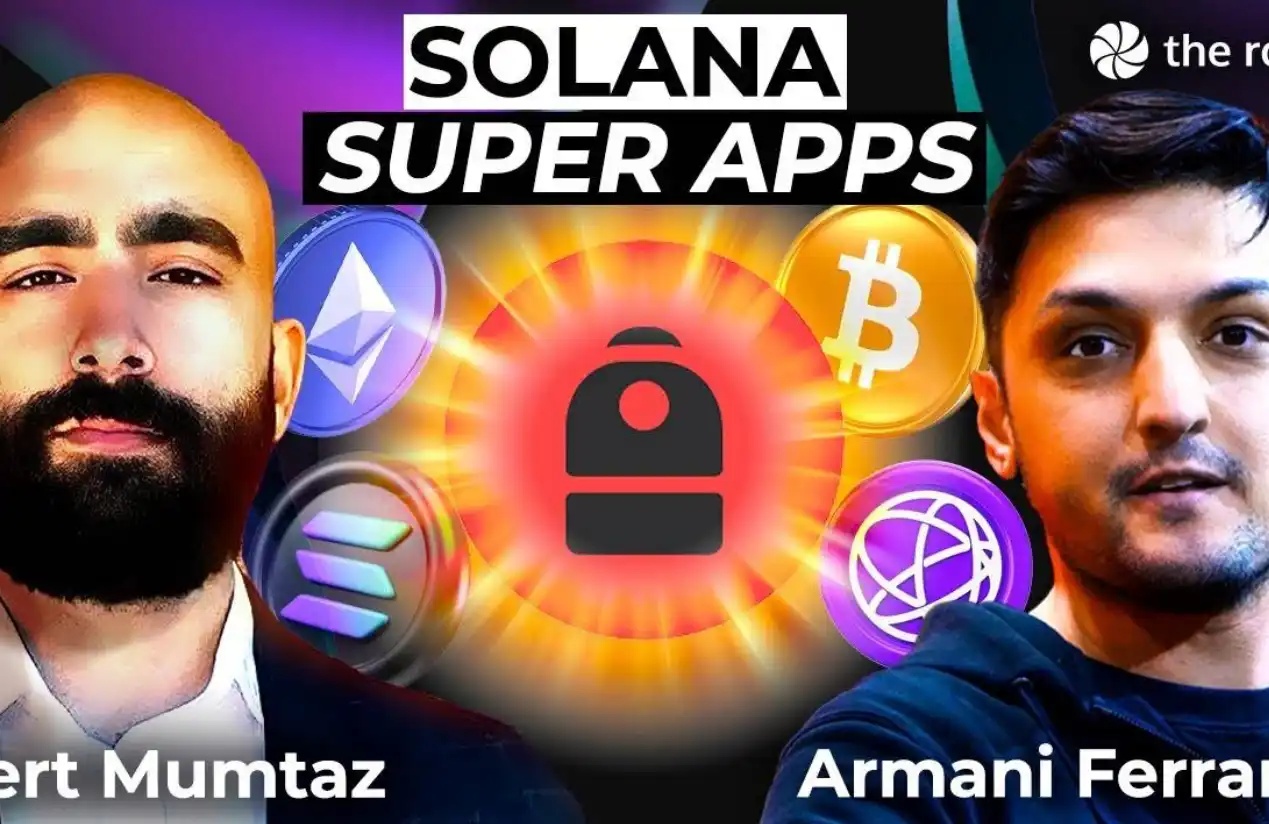CEO of Waterdrip Capital: Hong Kong Compliance is very attractive
Under the policy background of Hong Kong government's vigorous promotion of the development of virtual asset industry, Waterdrip Capital, a prominent player in the blockchain vertical field, also came to Hong Kong Web3 Festival 2023.
In an interview with Waterdrip Capital published by BlockBeats last year, Dashan disclosed the latest progress of Waterdrip Capital and predicted that he had signed an agreement with a giant to issue funds in Hong Kong this year.
And Waterdrip Capital came here to do exactly that: announceThe release of Waterdrip Capital, two digital asset funds launched in partnership with China Pacific Investment Management (Hong Kong) Limited.The two Digital Asset funds are Pacific Waterdrip Digital Asset Fund I (venture capital Fund) and Pacific Waterdrip Digital Asset Fund II (POS Token Income Enhancement Fund).
Pacific Waterdrip Digital Asset Fund I mainly participates in seed rounds and private rounds of early-stage blockchain projects. The layout track includes but is not limited to: blockchain infrastructure, decentralized financial applications, Web3 Saas service tools, metacomes and NFT applications. Pacific Waterdrip Digital Asset Fund II will mainly hold digital assets with POS as consensus mechanism. Based on the rich experience of the fund team in the industry and the judgment of macro-economic environment, Pacific Waterdrip digital Asset Fund II will enhance the income through timely changing positions, decentralized on-chain pledge and other methods. At the same time, financial instruments such as derivatives will be used to control risks and lock in profits when the market experiences extreme unilateral conditions.
The Hong Kong Web3 Festival 2023 also features a number of prominent guests from inside and outside the traditional Hong Kong financial community, such as the SFC Hong Kong Monetary Authority, licensing leaders, economists and other industry elites. Water drop capital has also invited some of the most representative of the industry: God fish, Kong Jianping, etc. To our surprise and delight, the rotating CEO of a leading company in the industry announced a new fund to invest in Water Drop Capital on the spot.

At Web3 Festival 2023 in Hong Kong, BlockBeats Co-founder of Water Dripping Capital & Managing partner Dashan conducted an interview.
Hong Kong needs a new starting point to revive its economy
BlockBeats: Hong Kong is very busy this time. How do you view the relationship between Hong Kong and Web3? Is it mutually beneficial?
Dashan: I think this event is popular for two reasons. The first reason is that this is the first congress since the end of the pandemic. In fact, Wanxiang's annual meeting in Shanghai was also very popular, and there were many peripheral meetings, although not as many as now. Because of the epidemic, in the past two or three years, due to various restrictions, we did not have a proper meeting, which was very quiet and depressed for a long time. Of course, Consensus and Token2049 were also popular before, but the distance and visa issues were inconvenient for many people, especially on the mainland. But Hong Kong is relatively convenient, so that should be the main reason.
The second reason is that the theme of the conference is "Festival". The word "Festival" is very simple, it means "festival", let everyone come and have fun, without any pressure. If you go to DevCon, a lot of people probably won't go because they may be less tech savvy and prefer to see some dry, summative stuff. But "Festival" means that any character from any industry can come, so we also met a lot of friends this time, basically a variety of characters you wouldn't see in the mainland, such as those who are not in the mainland due to compliance issues, or those who have moved overseas and can't easily go back to the mainland, so everyone came to Hong Kong. Therefore, I think it is these two reasons that lead to the popularity of this activity, especially the main venue, where basically every booth is very popular.
BlockBeats: The main reason for Hong Kong to hold Web3 Festival this time may be to rely on Web3 industry to attract and retain more funds. Do you agree with this opinion?
Dashan: I agree. As far as I know, for some reasons, Hong Kong has suffered a serious loss of both capital and talent in the past few years. It must be in urgent need of a new starting point to revitalize its economy. This is a point that everyone can understand. In particular, the Chief Executive attended many Web3 activities intensively these two days. As the Chief executive himself is a police officer, he is strong in execution and gives people great confidence with his practical actions. Therefore, as practitioners, especially those in the mainland, there is not much need for "support". We can do well on our own. As long as we are not oppressed, we can do things with confidence. So when the project side comes, when the organization comes, when the money comes, when the traditional organization like the family office sees such a good environment coming in, I think everything is going in the right direction.
BlockBeats: Yes, I agree with you. Some people may say that Web3 in Hong Kong will not make much profit, because the developers come from the mainland and the money also comes from the mainland. The contribution to Hong Kong is not very much, but indeed it can attract a lot of funds. There are also many people who think that this activity contains a high amount of VC, probably most of the attendees are VC. In addition, now when a good project comes out, such as Sui or Aptos, its valuation is suddenly very high, and there is not much room for retail investors to participate. Will there be opportunities for individual or retail investors in the future Web3 industry or market?
Dashan: I think the answer is yes. Even very mature financial markets, including futures and stocks, have a large number of retail investors, but they play differently. Two or three years ago, there was probably no difference between institutional and retail investors. Especially in the IC0 era 18 or 19 years ago, there was almost no difference between institutional and institutional investors. Everyone made direct payments to the project side and then took coins. Gradually the institution may have stronger research ability, whether it is doing level 1 or level 2, it will be more advantageous in relative terms.
But I think this is not absolute, because institutions are also made up of individuals or individual investors, their cognition may not be more profound than some individual investors. So for retail investors, I think it is a test of their research ability. In fact, some Kols on Twitter are retail investors, but their cognition is very deep. Institutions tend to have more money, but we can't compare the amount of money with institutions, but in terms of capital efficiency or return multiple, I think it is very common for retail investors to beat institutions.
Hong Kong compliance has a very big charm

BlockBeats: This event features a number of previously offshore and semi-anonymous teams on the mainland. Do you think they want to explore or explore more compliance possibilities and avenues?
Dashan: Yes, I think a lot of people come to Hong Kong to see how compliance is and what kind of regulations are in place. Because most investors, at least our friends around us, are subjectively very willing to comply, no one is willing to intentionally violate the rules.
Before this, no matter in the mainland or in many countries, people mostly believed in a "do what is prohibited by law", that is, people wanted to do this business, but there was no way to comply, or there was no clear way to comply, so they did it first. But one of the biggest pieces of news in Hong Kong this time around is that there are actually, albeit a very limited number, of compliance licences being issued. As far as I know, the exchange approved three number 7 plates, although only three were approved, but there are hundreds of people waiting in line, so it's not going to happen that fast.
BlockBeats: Is Hong Kong stricter than Singapore in this area?
Dashan: On the contrary, Singapore is stricter than Hong Kong. After all, Hong Kong has already approved three compliant banks, but Singapore may not have any at all. They are all pure virtual currency trading shops. So here we have three, and although most of them are probably in line, and we're probably not going to get a fourth one any time soon, this at least gives you hope, at least the possibility of compliance. That's why this time I met a lot of people who had gone to Dubai, Singapore, Malaysia, and various trading platforms in small countries. They all came to Hong Kong. Compliance in Hong Kong has explicit protection for some other businesses, including asset management, because compliance is on the one hand supervision and on the other hand protection.
The new fund of Water Drop Capital is also established under the No.9 license. The cooperation with the Hong Kong asset management company of China Pacific Insurance focuses on two aspects. On the one hand, they have No. 1, No. 4 and No. 9 license, which can be used directly after the cooperation. On the other hand, their traditional capital management scale is very large, indicating that they have very good risk control ability and the ability of middle and background. So basically speaking, the fund of the currency circle is no problem in the industry, but it is not very good in the aspect of risk control, especially fund safety.
BlockBeats: So is Crypto the main target of the new fund?
Dashan: It's all Crypto. It's all blockchain. Of course, we support both equity investment and Token investment, so it's no different from Token Fund.
BlockBeats: This is really a cutting-edge step. We did hear that a lot of VCS are applying for a license, but I didn't know what a VC application was before.
Dashan: Yes, a lot of VCS are applying for licenses, especially for the so-called Big Nine license. Big Nine plate is to add "VA" to the traditional Asset management license, that is, "Virtual Asset" (virtual assets) such a category. But in Hong Kong, if you don't have a previous asset management license at all, it is very difficult to apply for or get a Big 9 license directly.
The difference between Traditional 9 and the current Big 9 is that while Traditional 9 only allows 10% of funds to be invested in cryptocurrencies, Big 9 allows 100%. So it is very difficult to apply for the Big 9 license plate, which is why we did not directly apply for the license plate, because we know that many peers are trying to apply for the license plate, including HashKey. HashKey has taken a year or two and spent a lot of money doing it. Before, it was relatively easy because no one else was doing it, but if you rush to apply now, it might cost a lot of money. The key is to wait a long time. So we simply found a traditional financial giant interested in Crypto and digital assets, and cooperated with them, and they were also very interested.
Compliance difficulties abound
BlockBeats: As far as you know, what kind of difficulties will these funds or VC applying for the license meet now? How long will it take?
Dashan: There will be a lot of difficulties. HashKey has a strong background in the traditional financial circle. For example, Dr. Xiao's background from doctor to founder has spent nearly two years with their seniority. For many cryptocurrency funds, especially many excellent funds, are actually "Crypto Native", without any financial experience. I don't know much about it, but as far as I know, the qualification requirements for the company applying for the License are very strict, such as whether the company has rich experience in the financial industry before, whether the risk control model is complete, including the manager's experience in the financial industry, license, practice license and so on. There are a lot of regulations in these aspects. However, in my opinion, most Token funds do not meet these conditions, so it will take a long time for them to make up the shortcomings first.
BlockBeats: So let's put the VC aside for a moment. Many project operators are asking whether they can enter the Cyberport and science park, and whether they will comply with the regulations after they move in. Will these problems be easier than applying for a license?
Dashan: I was talking about what happens to institutions, like investment institutions. But if you are a project side, the problem is much easier. There is also official support for entering the Cyberport, including financial and other support, which is relatively simple. However, Hong Kong does not have a clear law on whether issuing tokens is legal or illegal, at least not yet. I have encouraged a lot of projects that we have invested in. Anyway, let's come here first and talk about it. If one day the supervision is strict, we will leave after a long time and have nothing to lose.
As far as I am concerned, the basic attitude in Hong Kong is "you are welcome to come first, you can come first". So our people and money will come first. When enough people come, or when there are some problems, we will solve the problem. We have a lot of communication with the regulatory authorities because we are a compliance fund. I think eventually there will be regulation, but how severe is not clear.
Next year's Crypto market is optimistic
"Water Drop" is a powerful weapon made of strong phase interaction materials in "The Three-Body Problem" -- water, water drop capital named after the strength of resources on the strong barrier of technological progress, with keen industry insight to discover and explore the potential value of the blockchain field of early projects, mobilize resources to grow together with them, and jointly explore the front of knowledge and technology. At the same time, in the process of promoting technological progress, the continuous creation of value for investors with strong financial returns.
As the implied meaning of the name suggests, Waterdrip Capital was formally established in 2017 by several senior practitioners who were the earliest participants in the blockchain industry in China. It focuses on the vertical field of blockchain.
Led by a core team with strong technical background and rich investment experience, Since its establishment 5 years ago, it has invested in more than 150 blockchain projects at home and abroad, including the underlying public chain, the protocol layer, the application point layout of DPOS ecology, COSMOS/IRISnet ecology, Polkadot ecology, DeFi application, DAO application, etc., which continues to bring investors rich returns. The overall performance was very good.
BlockBeats: Your opinion on the market in 2023, and how do you prepare for the Crypto market in 2024? Do you think the four-year cycle still exists?
Dashan: First of all, I don't think we should be superstitious about the "four-year cycle". I don't think it's logical or scientific, but I think it exists objectively. It doesn't exist because of the cycle of funds or the halving of Bitcoin. For example, the bear Market in the past 22 years just caught up with the interest rate hike cycle, then the "Warming Market" in the past 23 years, which means "no bear, no bull", just caught up with the macro interest rate hike slowdown, then the next year may be more "no interest rate hike", and even the water may be cut off. In this way, the four-year cycle comes again, which seems amazing. But you'll see that it's not because bitcoin has halved, it's just that the timing overlaps.
So I'm personally optimistic about next year, and this year I'm neutral. But this year is a good time for a first-level layout, because if you are optimistic about 24 years, 25 years, you in 23 to layout some first-level projects is a good opportunity, of course, directly to buy second-level is no problem, such as buying some "blue chip", because there are still many problems in this industry, such as the application of excessive financialization, Most of them are DeFi, so other applications outside DeFi, such as Social Media, office software, Game, etc., are not well developed, perhaps because the infrastructure is not perfect. This is actually an opportunity. As storage requirements for various computing aspects of ZK become high, computing and storage hardware items are also a focus of our layout.
BlockBeats: In this process, how should retail investors improve their cognition?
Dashan: The emphasis of retail investors and institutions may not be the same. For example, institutions can go to some early projects, in the angel round, seed round into, but retail investors may have to wait until the project online, whether it is brush airdrop or wait until online to find the opportunity to trough again, everyone's stage is not the same, but in fact, the opportunity is not necessarily which big. There are a lot of projects may not perform well on the first line, but if retail investors research enough, he will wait until the institutions are sold, all the pot, then buy, maybe he will make money. It is not easy to talk about the problem of improving cognition, because everyone has different conditions. In short, read more articles of BlockBeats. I'm not saying that because you interviewed me. Personally, I use the BlockBeats APP a little every day, even if it is very fast, so that I can have a sense of what is happening in the industry, which is very important, and then think from the aggregation of these information.
Welcome to join the official BlockBeats community:
Telegram Subscription Group: https://t.me/theblockbeats
Telegram Discussion Group: https://t.me/BlockBeats_App
Official Twitter Account: https://twitter.com/BlockBeatsAsia
 Forum
Forum OPRR
OPRR Finance
Finance
 Specials
Specials
 On-chain Eco
On-chain Eco
 Entry
Entry
 Podcasts
Podcasts
 Data
Data

 Summarized by AI
Summarized by AI






